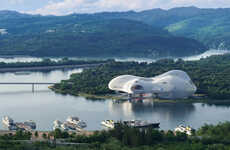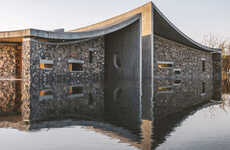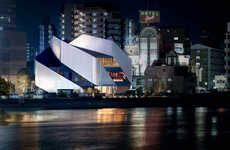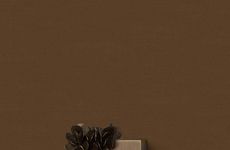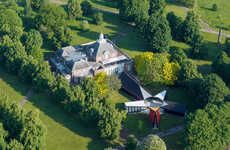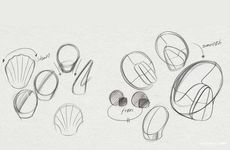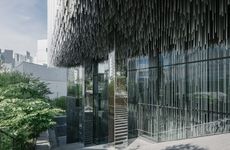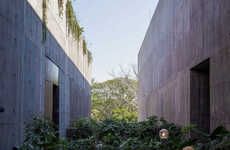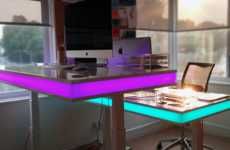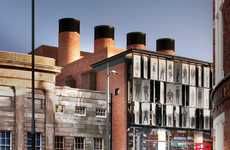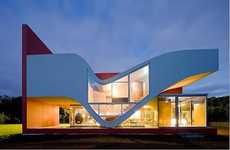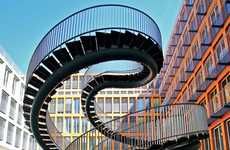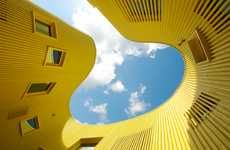
The OODA Busan Opera House Embodies an Organic Oceanic Influence
Amelia Roblin — September 5, 2011 — Art & Design
When designing a building planned for the water's edge, architects are afforded the exciting opportunity to appropriately employ marine-influenced forms. The OODA Busan Opera House takes full advantage of the soft spiraling forms of the sea to compose an impressive and iconic monument on a bank in the South Korean city.
The shape of a conch shell was chosen to house the broad public program within the theater building, and where it appears from some perspectives to be hard and impermeable, the glow it emits after sunset reveals an open ribbed skeletal structure.
Despite the solid look of the overarching architectural masses, the interior has been conceived with an interest in adaptability. The pearly vaulted walls of the main auditorium embrace a seating plan that allows for three possible stage locations within the OODA Busan Opera House.
The shape of a conch shell was chosen to house the broad public program within the theater building, and where it appears from some perspectives to be hard and impermeable, the glow it emits after sunset reveals an open ribbed skeletal structure.
Despite the solid look of the overarching architectural masses, the interior has been conceived with an interest in adaptability. The pearly vaulted walls of the main auditorium embrace a seating plan that allows for three possible stage locations within the OODA Busan Opera House.
Trend Themes
1. Organic Architecture - Exploring the use of natural forms and materials in architectural design, there is an opportunity for disruptive innovation in creating buildings that seamlessly integrate with their surroundings.
2. Biophilic Design - Incorporating elements of nature into the built environment, there is potential for disruptive innovation in creating spaces that enhance well-being and productivity.
3. Adaptable Interiors - Designing flexible and adaptable interiors to accommodate different functions and activities, there is an opportunity for disruptive innovation in creating spaces that can easily adapt to changing needs.
Industry Implications
1. Architecture - The architectural industry can explore disruptive innovation in creating buildings that embrace natural forms and materials, enhancing sustainability and visual appeal.
2. Interior Design - The interior design industry can embrace disruptive innovation by incorporating nature-inspired elements into the built environment, promoting well-being and creating unique experiences.
3. Performing Arts - The performing arts industry can benefit from disruptive innovation by designing adaptable theater spaces that offer flexibility in staging, enhancing the overall audience experience.
3.7
Score
Popularity
Activity
Freshness


